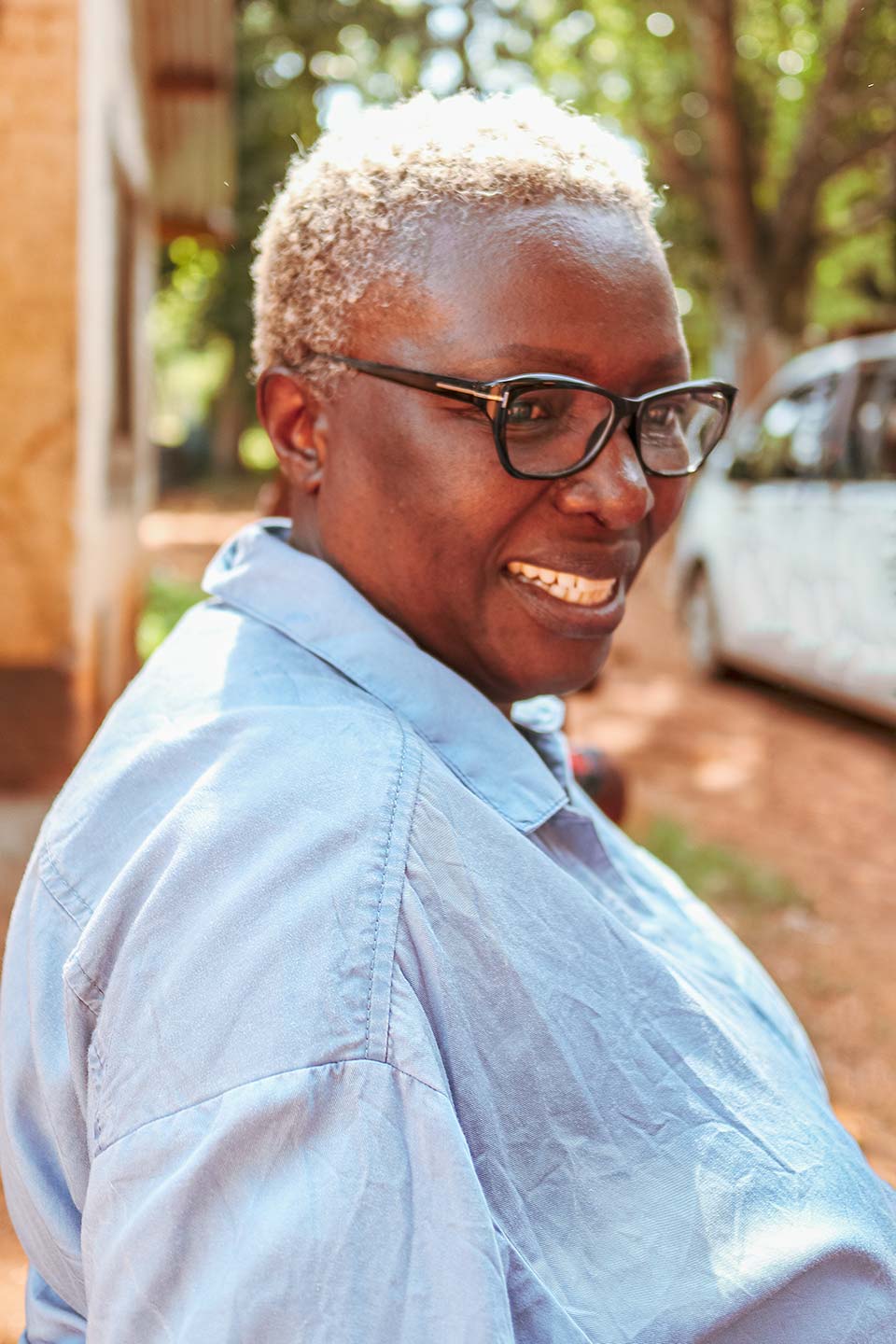
We Can Create Change Ourselves: Empowering Women with Coffee
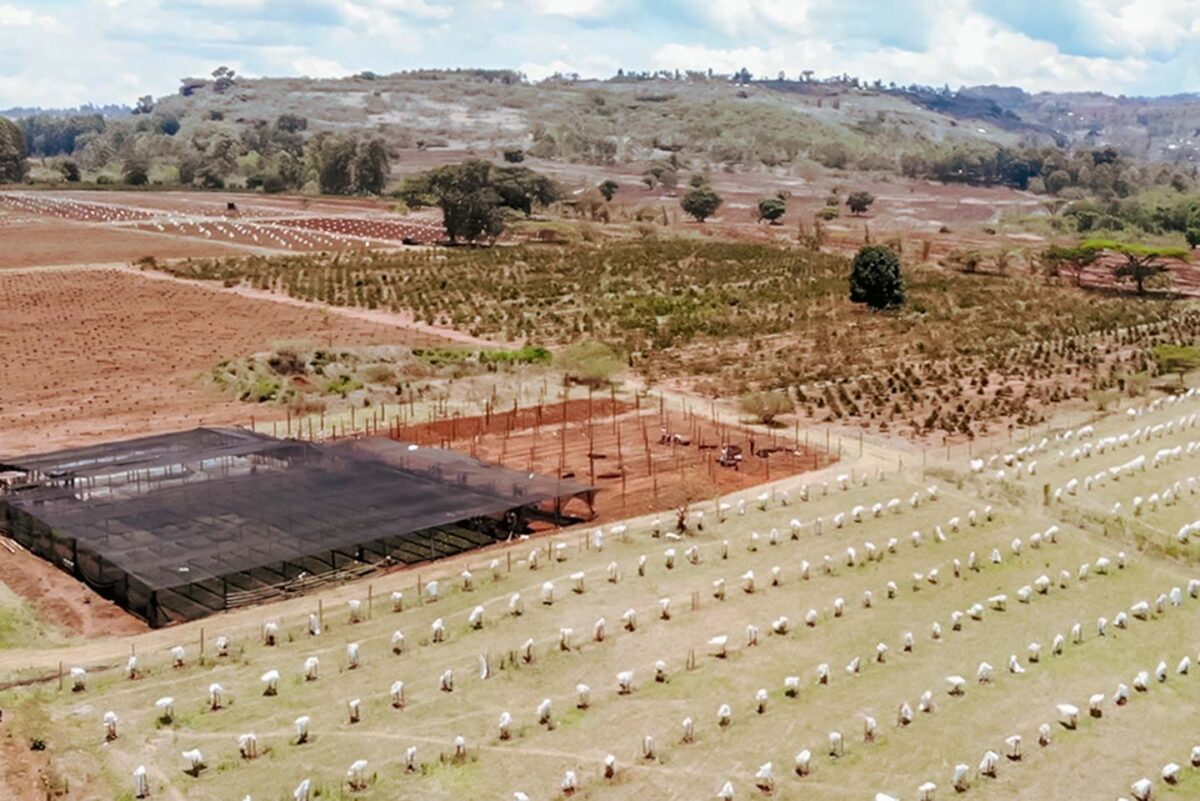
Located in western Kenya, Mount Elgon straddles the border with Uganda. At the foot of this mountain lies Sakami Coffee, founded by Gloria Gummerus, a Kenyan native, and her husband Jarmo, originally from Finland. Initially starting out as a contract farm for corn in 2004, Sakami has shifted its focus to coffee production, with yearly yields on the rise since they first planted coffee trees in 2011. In addition to their meticulous quality control standards, the company has emerged as a local pioneer in adopting circular agriculture practices. These include using coffee pulp as worm food and livestock manure for compost.
Gloria’s passion for specialty coffee stems from her commitment to fellow small-scale producers, with a particular emphasis on uplifting women. She has worked with female coffee producers abroad, striving to elevate the status of women and advocating for small-scale producers in her own nation. According to Gloria, promoting coffee production is an avenue to giving women greater self-respect and encouraging them to join the workforce. “This is my mission, and I find great joy in it,” Gloria declares. We spoke to her to find out what inspires her to pursue her mission.
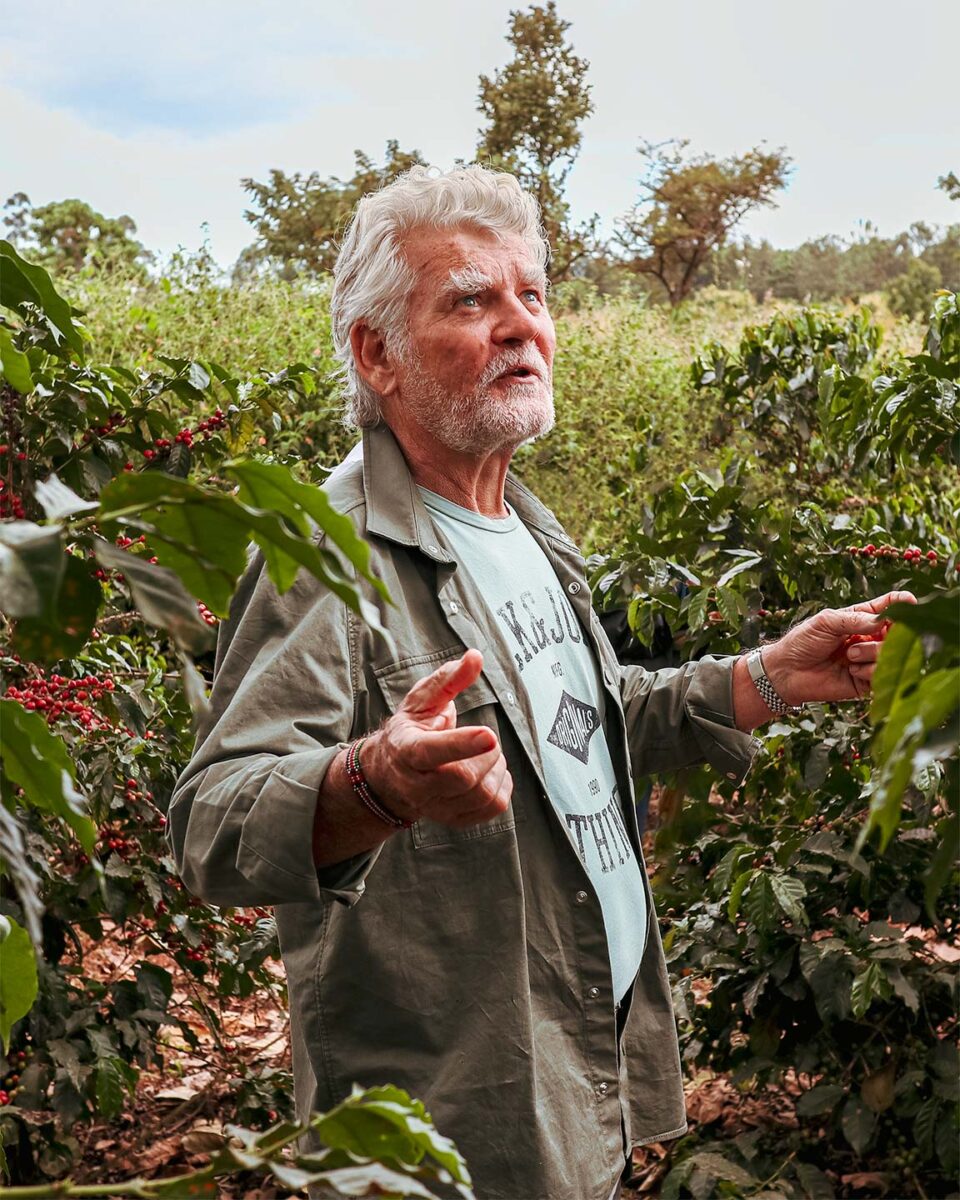
Farming practices friendly to humans and environment
Mount Elgon is rich in natural diversity. There are precious caves where herds of elephants come in search of salt. Its surrounding area is rich in water resources, including wetlands and underground water veins. The clear water is used for irrigation and cherry washing. It is natural that Gloria and Jarmo have come to promote environmentally friendly agriculture.
After graduating from college with a degree in environmental protection technology, Jarmo worked for an energy company. Around 2009, he used this knowledge to install solar-panel-powered irrigation pumps on farms that previously had no electricity. At the time, such an example was unprecedented in Kenya.
“My motivation comes from the desire to transform this land into a lush forest-like environment, making it home to a diverse array of animals, birds, insects, and vertebrates. I’m looking forward to seeing how beautiful the environment will look in 10 years.
If this kind of idea spreads even a little, it will lead to greening and forest protection at the local level. It will also have a positive impact on the local climate. We live in a really special place. If we keep trying, maybe we can have a positive impact on the climate on the other side of the mountain, too.”
Their farm is also characterized by its shade trees, which provide protection to the coffee trees from direct sunlight. This shading brings about a temperature reduction of two to four degrees Celsius, resulting in a slow and gradual ripening of the coffee cherries with rich and juicy flavors.
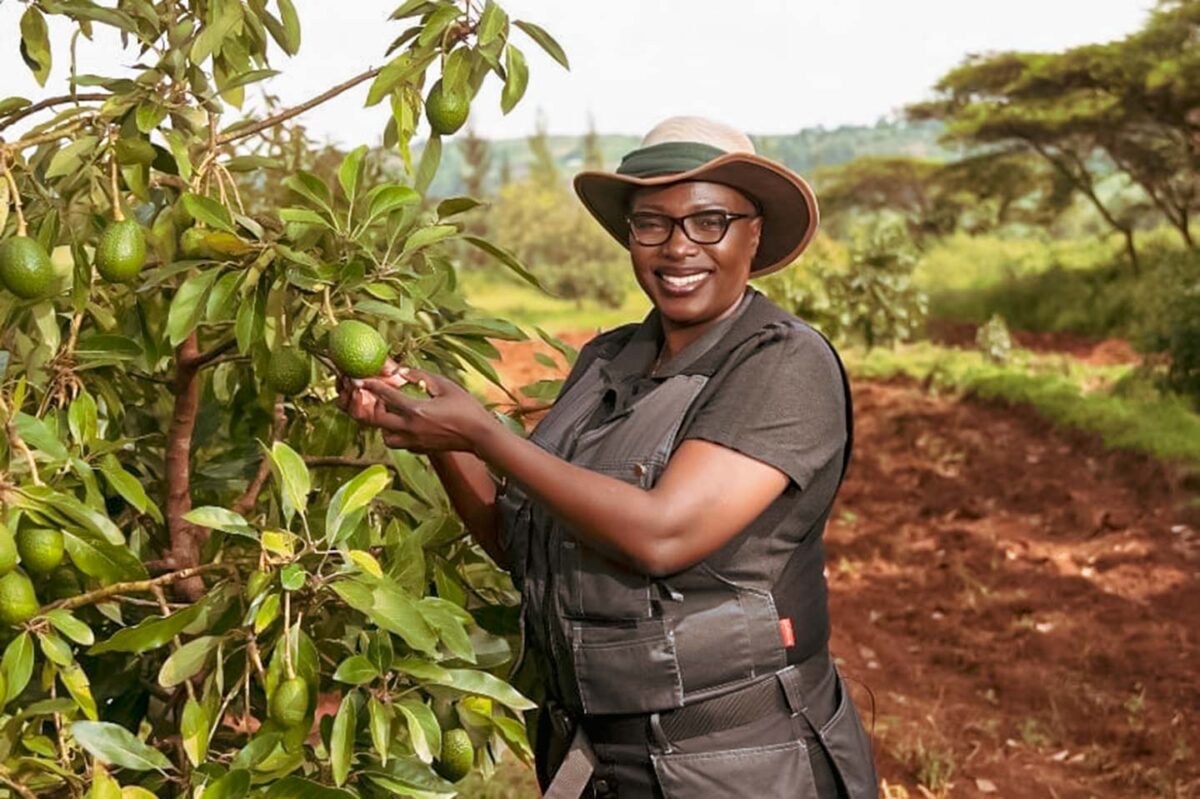
The farm’s forest-like environment also enables the retention of moisture in the ground, making it resistant to drought. While Grevillea is the more prevalent type of tree planted in this region, Sakami has followed Rwanda’s example and diversified their farm by introducing macadamias.
Gloria: “Macadamias provide an additional source of income for the farm even after the coffee harvest is over. Moreover, they have excellent nutritional value, making them a healthy option. We also provide seedlings to nearby farmers if they request.
When we plant more trees that also produce food for children, we feel like we are giving back to the earth. It’s unfortunate that many people take advantage of the earth’s resources without giving back. We’d like to go back to traditional farming practices where people lived their lives in harmony with nature.”

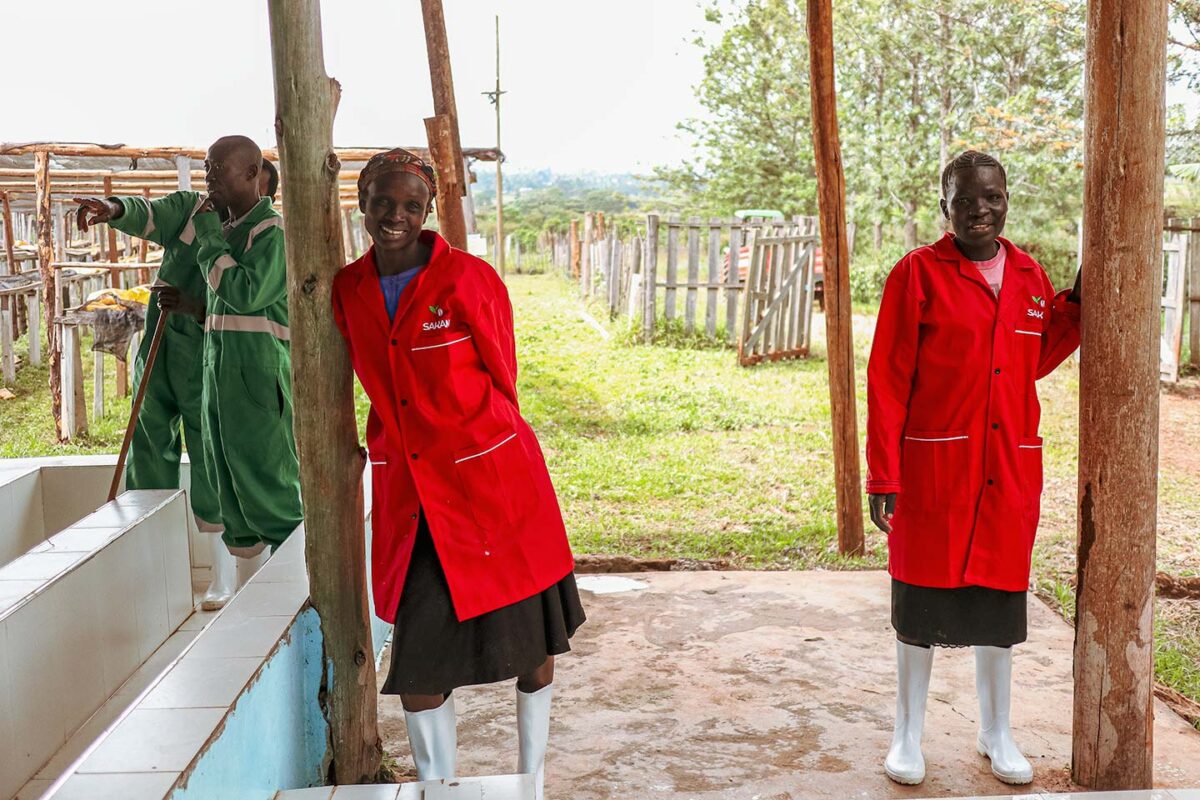
Creating job opportunities
Gloria grew up in a large family that owned a local farm, and they enjoyed a comfortable, middle-class life. However, when she left her hometown for higher education and returned home, she was shocked to see that the farmers’ way of life had not changed at all. In addition, the coffee farms that were once a common sight had disappeared and were replaced by housing areas.
“Witnessing this reality, I felt an urgency to improve the living standards of the farming community. But to do that, I had to first instill a sense of hope and possibility. I needed to let them know that while their present situation may not be bad, there were indeed better ways of life.
In fact, not everyone is willing to work hard because they have given up on a better future. In such cases, they may need external incentives to spur them into action. But if they have the desire to grow and change their lives, then they are able to move in the right direction.”
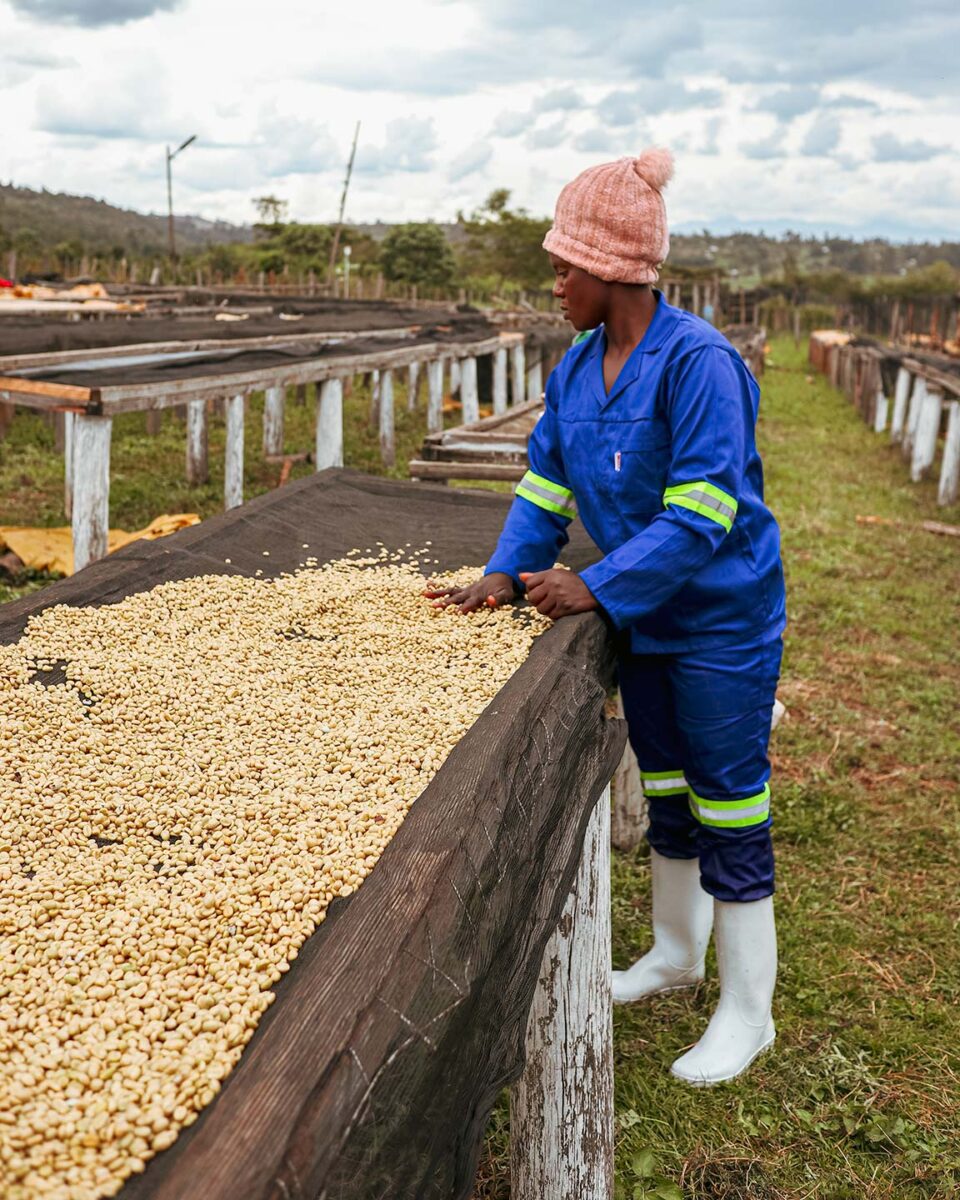
The pivotal moment for Gloria came when Jarmo shared his newfound passion for coffee, having been inspired by his travels to Rwanda. The idea of growing coffee had always intrigued Gloria, and she was eager to seize upon Jarmo’s suggestion. Together, they planted seedlings on a 16-hectare expanse of land. And they named the farm “Sakami,” a combination of their children’s names. That was in 2011.
For years, the conventional practice in their community was to cultivate large expanses of land for maize production. While this ensured a steady source of income for the farmers, partly because the region is one of the few with a stable supply of maize, declining sales prices gradually eroded their earnings. As family-owned farms began to replace large-scale operations, many agricultural laborers were left jobless and had to seek employment in shopping centers. Even as some people continue to rely on maize for their livelihood today, Gloria is acutely aware of the precariousness of monoculture and its uncertain profitability.
“Our parents’ generation never had the idea of replacing half their farmland with other crops to increase their income stream,” Gloria reflects. “But today, we are striving for a different kind of agriculture. Growing multiple crops can be a game-changer.”
We want to provide our community with consistent employment opportunities,” Gloria explains. “To achieve this, we’ll grow various crops all year round, starting with coffee, followed by macadamias, avocados, and other vegetables. By doing so, we can ensure that people have a reliable source of income and job security throughout the year.”

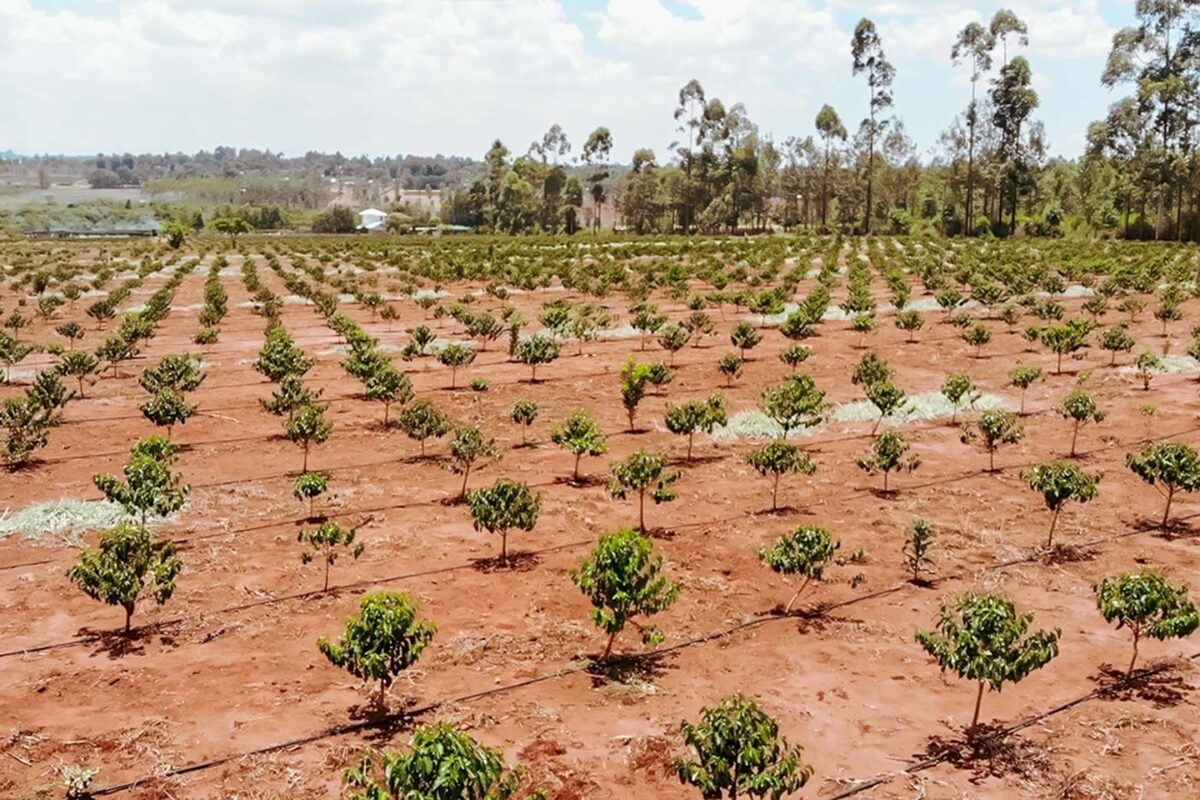
Bringing ‘our coffee’ to the world
Gloria and Jarmo have devoted much time and effort to improving the quality of their coffee seedlings, and their hard work has paid off with an annual production rate of 100,000 seedlings. They generously share these seedlings with nearby farmers to promote coffee cultivation in the area. To make it easier for others to enter the coffee industry, they lend out pulpers free of charge to help strip the pulp from the coffee beans. And for those who cannot afford to purchase seedlings, they offer the opportunity to work for Sakami.
“We’ll promote this area as a coffee origin,” Gloria declares. “We decided to make it our life’s work, and I hope that our coffee will be recognized as our coffee, not as part of a blend.”
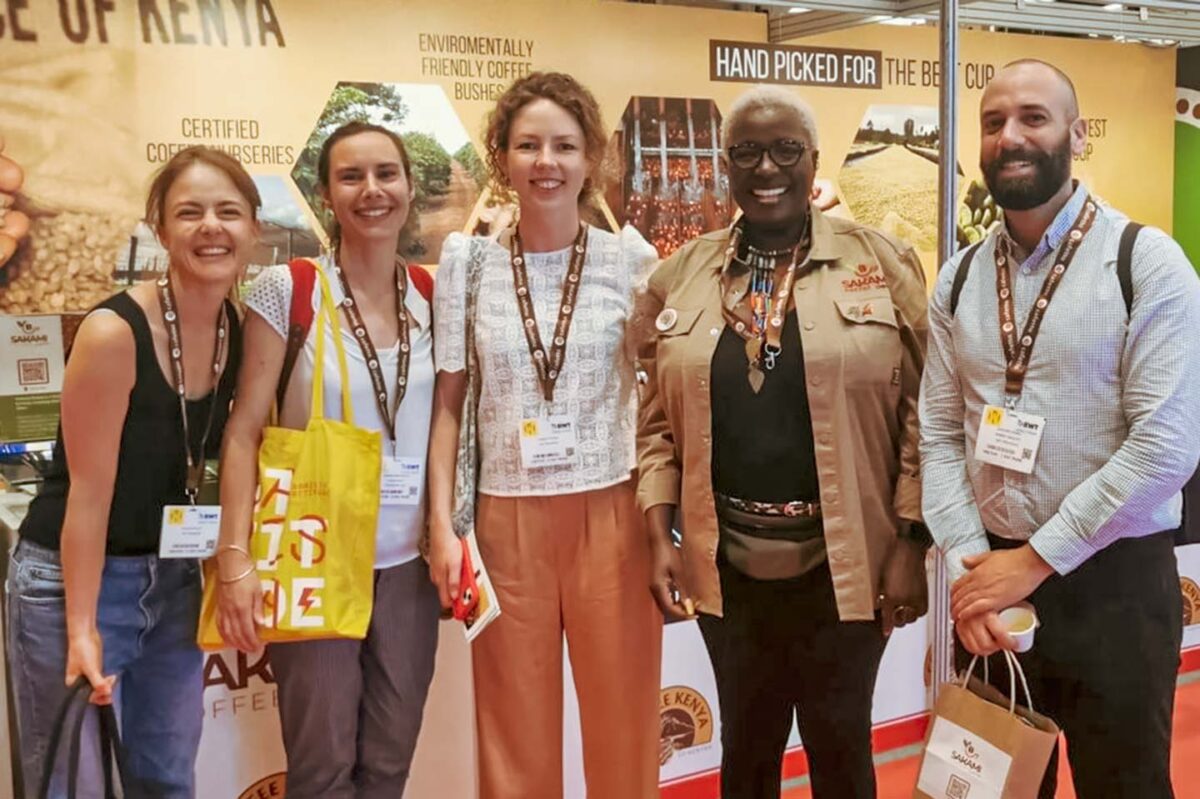
Previously, their coffee was mixed into blends by large buyers, with no one knowing where or by whom it was produced. However, Gloria’s efforts have helped to change this. Coffee from the Luhya region is now becoming more widely recognized. She realized the impact of her work when she attended a coffee trade show in Italy, where one roaster shared his impressions and interpretation of Sakami’s coffee.
“They roast our coffee with much passion,” Gloria says. “They package it beautifully and sell it under a great name. At the farm, we only see our own work, but I realized that our coffee is going out into the world and making someone happy. It’s hard to put into words just how wonderful it was to have this experience.
The women working on our farm were also amazed and told me, ‘’I never even imagined coffee could bring in so much income and make me so happy.’”
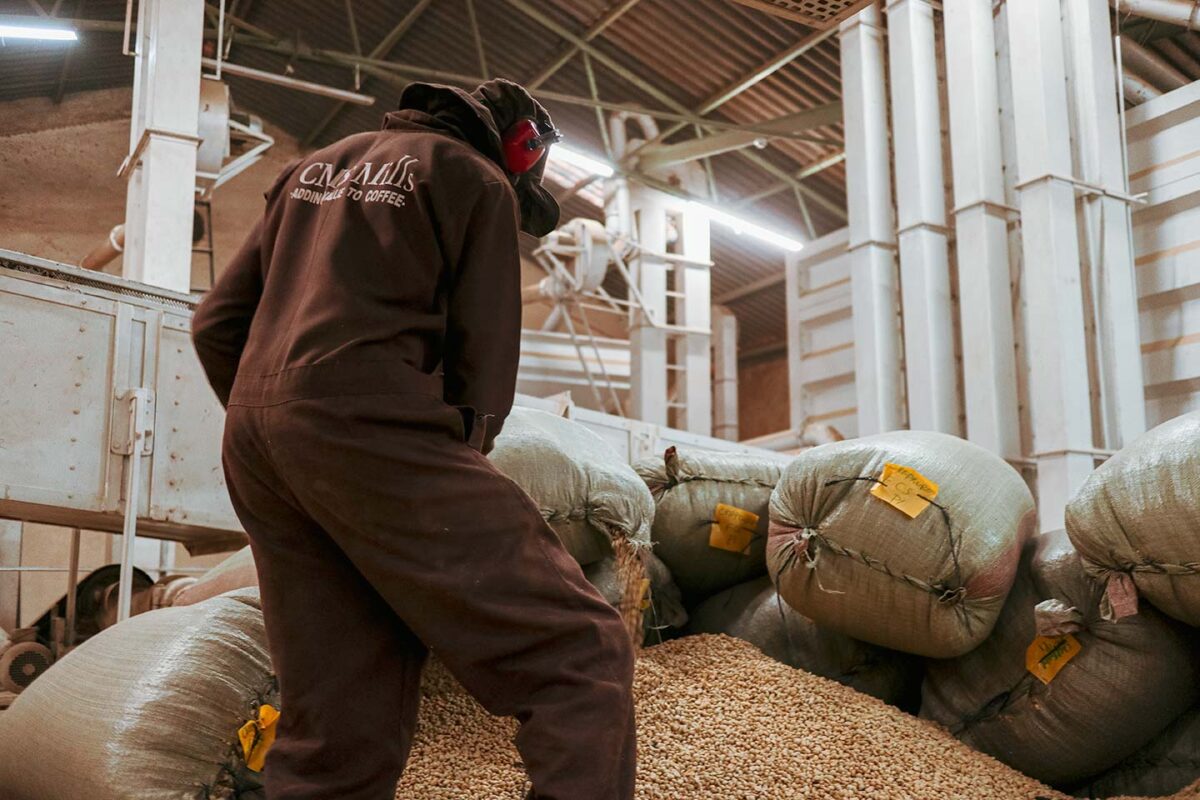
Currently, Gloria and Jarmo are planning to build a dry mill. They see it as the missing link in their production infrastructure. When completed, it will allow them to do the entire production process on their farm from start to finish, which also eliminates the need for intermediaries. By doing so, the producers can increase their share of the profits and sell their coffee directly to clients at a lower price.
Once the dry mill is built, it will also allow them to handle smaller lots of coffee. Currently, they outsource coffee processing, and it requires a minimum of 20 bags. But with the dry mill, they will be able to accommodate roasters who may only want coffee from a particular area. For instance, when roasters visit Sakami, they will be able to select coffee from the specific area they prefer.
Gloria: “We used to have direct trade, but that was in name only. We didn’t know who bought our coffee or how they evaluated it. But with our new partnership, we can focus on increasing coffee production and promoting genuine direct trade. I believe this is the only way to transform the current situation of producers.”

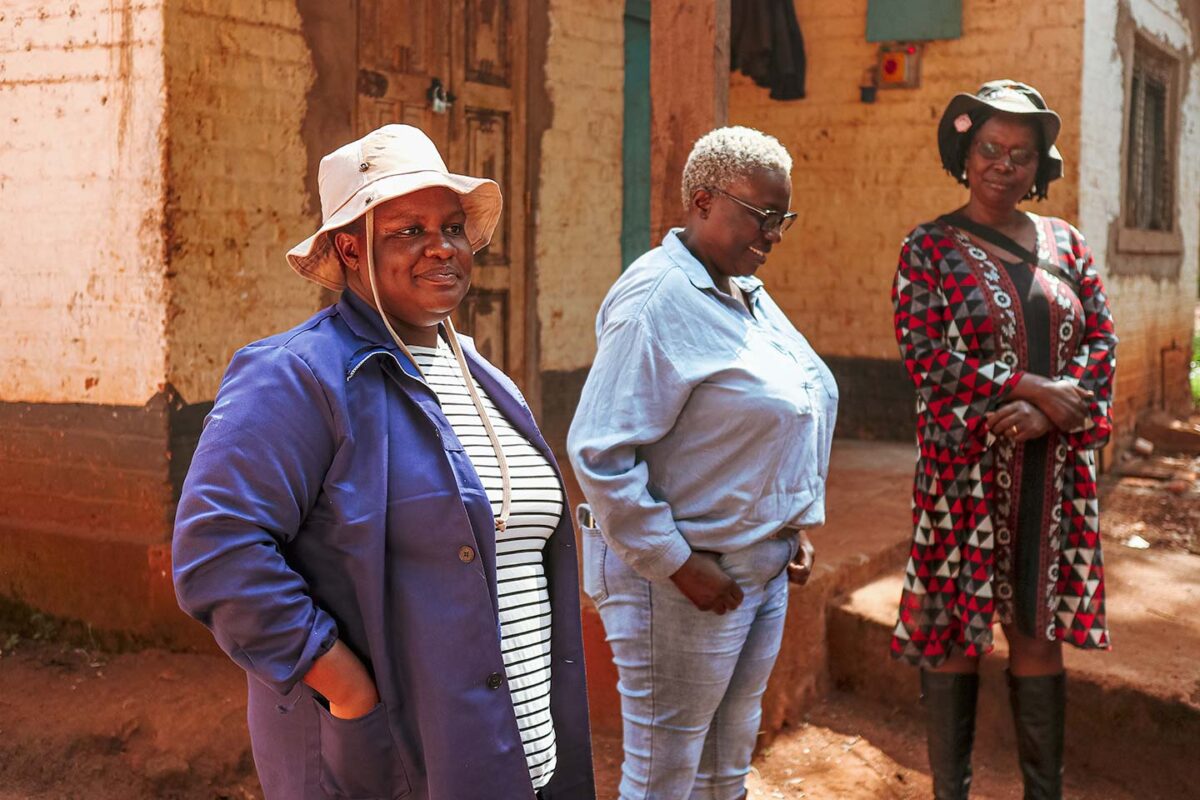
Helping women become independent
Gloria’s motivation for increasing coffee production and the number of producers is not solely for business expansion. She aims to empower women and encourage them to embrace new values and become independent. As proof of her commitment to this mission, Sakami has female managers and female factory managers. These women serve as role models, inspiring job satisfaction and motivation for growth among women.
Women who work with Gloria and Jarmo have started planting coffee trees alongside macadamia nut trees on their farms. These crops are now being distributed in the market by Sakami.
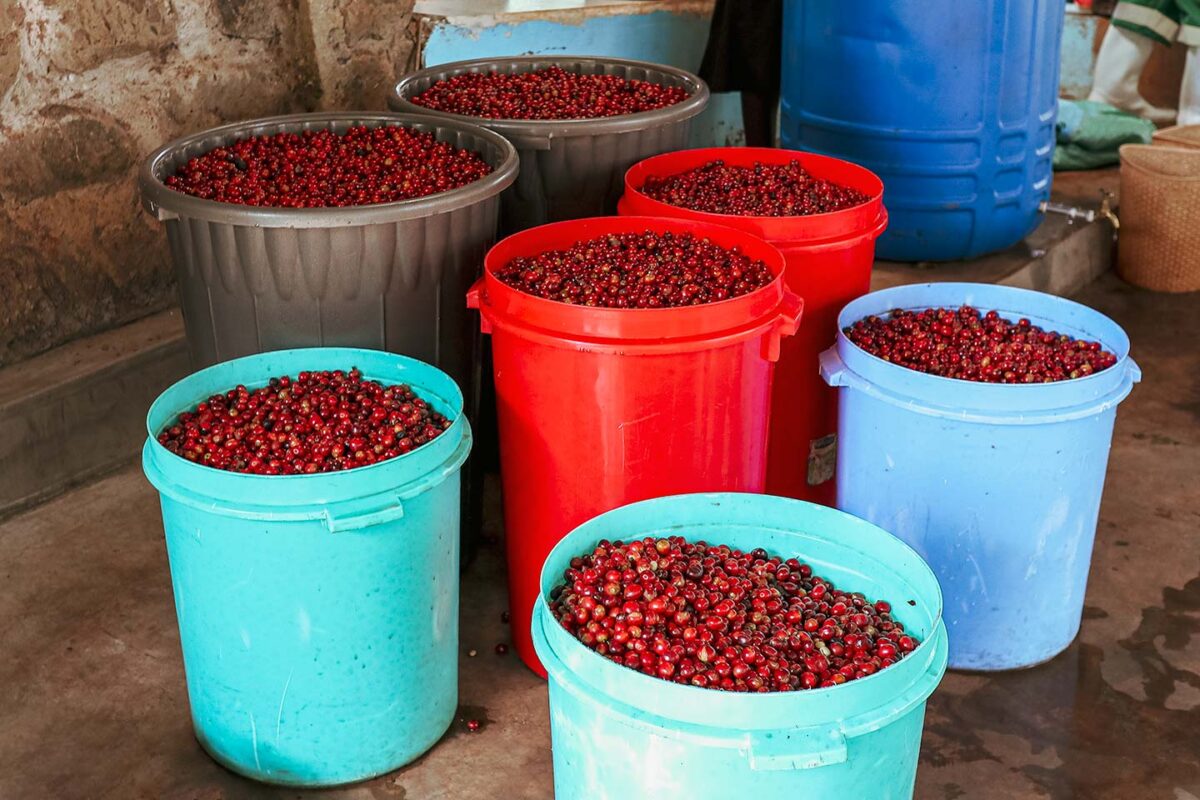
“A majority of the women don’t own their property,” Gloria explains, “and even those who do, they only have a small piece of land, which can only accommodate a few coffee trees. Despite this, these women work together to harvest coffee, which they bring to Sakami for pulping. While the quantity is often too small to sell on its own, it can be combined with the coffee of other medium-sized producers to create enough volume for market sales.”
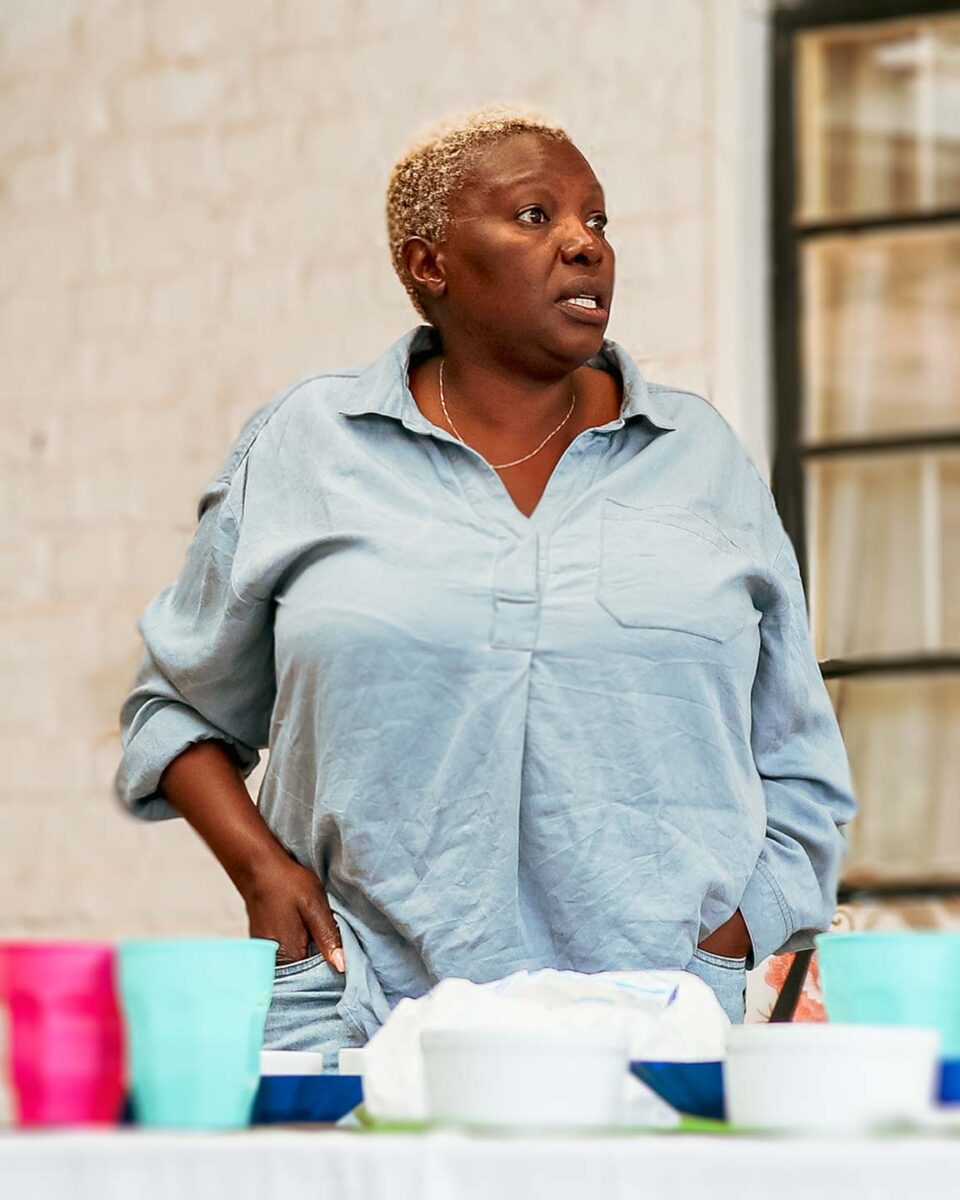
As the founder of the Kenyan chapter of Women in Coffee, an international organization that supports the independence of women coffee farmers, Gloria is committed to empowering women in her community. In Kenya and many other African countries, husbands do not have a stable job and often control the sale of coffee produced by their wives, which can lead to a lack of transparency as to how much their coffee was actually sold for. Often, women have no way of knowing even if their husbands tell them a lie. To address this issue, Gloria is involved in managing a platform that handles coffee produced by women in Africa. By giving women more control over their coffee sales and income, Gloria hopes to create greater financial stability and independence for women in her community.
“By being a part of Women in Coffee, you have a clear idea of the potential income you can earn from coffee. By teaching women how to earn a living through coffee production, they can become financially independent and no longer have to rely on others for help, even when they don’t have enough money to send their children to school. They no longer have to depend on their husbands or marry off their children at a young age. They can create change on their own.”
Gloria’s efforts have paid off, with more and more women joining the initiative. Some men have also caught on to the potential for higher prices by selling under their wives’ names. Gloria now serves as a liaison between cooperatives and buyers, advocating for the interests of small producers. Her work has earned her a spot on a committee that discusses structural reform of one of the country’s largest agricultural cooperatives, which is overseen by the government.
“I don’t do my work to be envied,” she explained. “Rather, I continue to do it because I want to make a difference in the lives of everyone around me. I may not be the best public speaker, but I enjoy it because I believe it’s my mission. This is my hometown, where I was born and raised.”
Text: Takuya Takemoto









